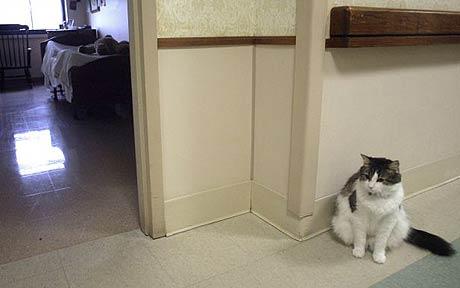 I’m in the proverbial broom closet. And it’s not because I’m worried about people who have wild misconceptions about paganism being equivalent to devil worship… convinced I’m shut in a dark basement, burning black tapers, chanting “Kalima, kalima!” and ripping the still beating hearts out of live poultry. I think the United States is at least slightly more progressive than that.
I’m in the proverbial broom closet. And it’s not because I’m worried about people who have wild misconceptions about paganism being equivalent to devil worship… convinced I’m shut in a dark basement, burning black tapers, chanting “Kalima, kalima!” and ripping the still beating hearts out of live poultry. I think the United States is at least slightly more progressive than that.
I believe that indulging in supernatural fantasy practices can be dangerous. I think there’s a certain stereo-type of religious people, especially those who believe in things like astrology and divination, as less than credible. Plus religion has led to countless wars, and problems like xenophobia and segregation: hell, even gays in our country are treated like second class citizens. So how could someone like myself, who sees the inherent problem with religion, support something so supernatural and not based in science?
1. Anything is possible
Scientists will claim we have an understanding of the cosmos that is vast, and this might be true, but how could it be anywhere near complete? Humans might be subatomic creatures on the back of a large Wurdang (a furry 5 legged monstrosity floating in an alien ocean near Zeekzeek) or the dream of little boy named Frank. I mean, I’m not saying like, “Oh, Neo, we’re in the Matrix, bend this spoon, I know Kung Fu!” …but I kind of am. We can’t prove this experience is 100% what we believe it is and there is a 50/50 chance of God, Santa, and the Easter Bunny all existing, or not existing, in equal proportion. Anything is possible. Magick is the science of tomorrow.

2. We’re limited by 5 traditional senses but we don’t have all the senses
Did you know there was a cat who predicted 50 deaths in a nursing home? How is that possible? There is no solid scientific explanation for that, but any number of plausible theories. But it’s not science: yet. My point is, there are senses out there that we can’t perceive, and we’re completely limited by human experience and our senses. In a good way.
3. Perception alters reality
Branches of quantum mechanics dictate that by perceiving or not perceiving, we affect the outcome of an experiment. Just take a look at The Double Slit Experiment or the concept of Schrödinger’s Cat.
Source
4. The mind is a powerful tool
If we can convince ourselves of something, then we can make it a reality. I know, I know… this is kind of a cheesy, Anthony Robbins “motivational speaker” concept, but it’s true! If we believe something,  there’s a connection to that faith, will, and positive attitude, and to our subconscious making it happen consciously. Example: Sue wants to lose weight. She believes she can do it, so her subconscious begins to affect her conscious mind. She starts to eat better and exercise more. Her belief that it will happen will affect her actions in reality.
there’s a connection to that faith, will, and positive attitude, and to our subconscious making it happen consciously. Example: Sue wants to lose weight. She believes she can do it, so her subconscious begins to affect her conscious mind. She starts to eat better and exercise more. Her belief that it will happen will affect her actions in reality.
5. The morality problem
All this “the possibilities are limitless!” and “science isn’t 100% proven! stuff is great… but then you could just believe whatever the hell you want, because it might be true, without any concern for what affect it has on you, or others. Religious people will argue you can’t have morality without religion.  I’d argue all you need is empathy. Empathy isn’t a religious idea, it’s a human idea. The Wiccan Rede dictates: “Harm none,” and while this is never an absolute possibility all the time, living with this thought in mind, we tend to make choices based on how it may affect other people, or the world around us. A sensitivity to not only our own experience, but how our actions will affect others, is a great rule of morality I think we should live by.
I’d argue all you need is empathy. Empathy isn’t a religious idea, it’s a human idea. The Wiccan Rede dictates: “Harm none,” and while this is never an absolute possibility all the time, living with this thought in mind, we tend to make choices based on how it may affect other people, or the world around us. A sensitivity to not only our own experience, but how our actions will affect others, is a great rule of morality I think we should live by.
Wicca has taught me that if I want something, I have to believe it will be a reality, and I can make it so. This optimism has made me a happier and healthier person. I bounce out of bed in the morning thinking, “Hell yeah, I can do whatever I want, because I’m a wise and empowered witch!” And it feels pretty friggin good to feel that way, if nothing else.



Some thoughts:
On ‘everything is possible.’
Everything is not possible because some things are logically and/or physically impossible. For example, I can’t use my tongue to knock down a skyscraper. One can’t have a square with 18 sides. I’m sure you know this, though, so perhaps you mean something different by ‘everything is possible.’
When I consider matters of belief/justified true belief/knowledge, I am considered with seems most reasonable to believe based on the given evidence, reason, and argument (not just what scientists have to say or what can be empirically observed). Various skeptical hypothesis you mention such as ‘we are living in a matrix’ surely can’t be ruled out 100%, but that’s not what knowledge is concerned with. If absolute belief or infallibility were a big deal, we wouldn’t be able to hold many of the beliefs we hold. Confidence, too, is another good way to think of beliefs. I am very confident about some beliefs I hold while I am less about others – no belief I hold, though, besides perhaps tautologies/definitional beliefs could be ‘certain.’ I am willing to revise any and all of my beliefs given new evidence, argument, and reason come in. Knowledge, too, is based on what we know at the moment. Things may change in the future, sure, but we need for that to happen before assuming that just because things may change, we’re justified in believing x, y, or z or radically doubting a, b, and c.
Lack of evidence for something doesn’t make that something 50/50. I don’t think it’s really possible, anyway, to assume a certain probability for very unlikely things (and Bayesian methods are preferred, anyway, but that’s beyond this discussion) aside from less than one percent or unless you can propose some way of figuring it out. In the case of a belief being true or not (whether the Christian god exists, for example, as you mention), it doesn’t suddenly become 50/50 because we see lack of evidence, argument, and reason in addition to several issues such as the problem of natural suffering, unanswered prayers, possible contradictions, etc.
I would be very weary to talk about quantum mechanics especially considering that the people who are most qualified to speak about it don’t generally draw epistemic conclusions based on findings (and they’re at the micro-level, anyway, not the macro). What the Bleep Do We Know, too, is a really terrible source that has been discredited by some people who participated in the movie who said they were hoodwinked – just for starters.
All awesome and valid points… religion can hardly be debated logically because it’s all superstitious nonsense. Nonsense that I subscribe too, yes, but still extremely hard to debate on behalf of. I almost took the part out about quantum mechanics because you’re right about it only working on the micro level at this point, but I figured it was something. And we will never know what happened to poor Schrödinger’s kitty 😦
A very interesting read, surely without the seer, the world is not seen, and surely limited senses cannot comprehend the unlimited abundance.